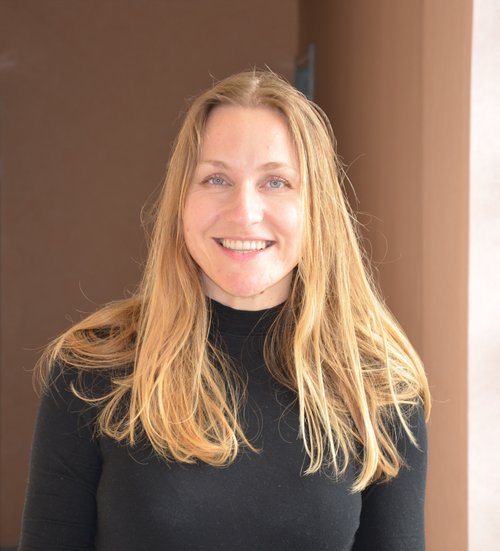Dr. Alenka Ambrož

Research activity
Alenka Ambrož’s research focuses on paradigms of intercultural translation from the point of view of postcolonial and decolonial philosophies. Her research work is particularly dedicated to the concept of relation (between cultures, languages and individuals) in theories of translation, and to a study of its epistemological, phenomenological, ethical and political dimensions. She is interested in bodily effects of translation, the relationship between translation and community buliding, the intrications of translation and gender, emancipatory stakes of translation practices and the role of language and translation in relation to epistemic justice.
Research areas and keywords
Epistemology, political philosophy, ethics, postcolonial philosophy, philosophy of translation, media studies
Selected publications
Ambrož, Alenka, 2022: La traduction et les politiques du langage commun en temps de crise, Crépon et al. : Le paradigme de la traduction : enjeux éthiques et politiques, Paris, Éditions Rue d’Ulm (forthcoming).
Ambrož, Alenka, 2022: La traduction, l’éthique et l’imprévisible relation : Repenser la traduction avec Glissant et Derrida, Revue des Sciences Humaines (forthcoming).
Ambrož, Alenka, 2022: Epistemološki i metodološki temelji « Homo academicusa », Mladenović, Zaric et al., Eternalizing Pierre Bourdieu, Institute for Philosophy and Social Theory, Belgrade.
Ambrož, Alenka, 2018: Les identités culturelles et la question de la traduction, Rahali, A. et al. : Identités culturelles et mondialité, Presse Universitaire de Safi.
Ambrož, Alenka, 2015 - Foucault's Ethics: Engaging Antiquity, Zaharijević et al. : Engaging Foucault. Volume 1, Belgrade : Institute for Philosophy and Social Theory, University of Belgrade.
CV
Alenka Ambrož received her PhD in philosophy from Ecole Normale Superieure in Paris (2021), where she had been employed as a research fellow from 2016. She had been a lecturer at Paris 3 Sorbonne-Nouvelle University. She graduated in philosophy at the University of Ljubljana and continued her studies in France through a scholarship of the French institute in Ljubljana. She holds MA degrees in Applied ethics, environmental and social responsibility (University Paris 1 Pantheon-Sorbonne) and in Theories and practices of language and the arts (EHESS Paris). She had been engaged as an interpreter and as an intern at the Observatory for discriminations of the Paris 1 Pantheon-Sorbonne university.
